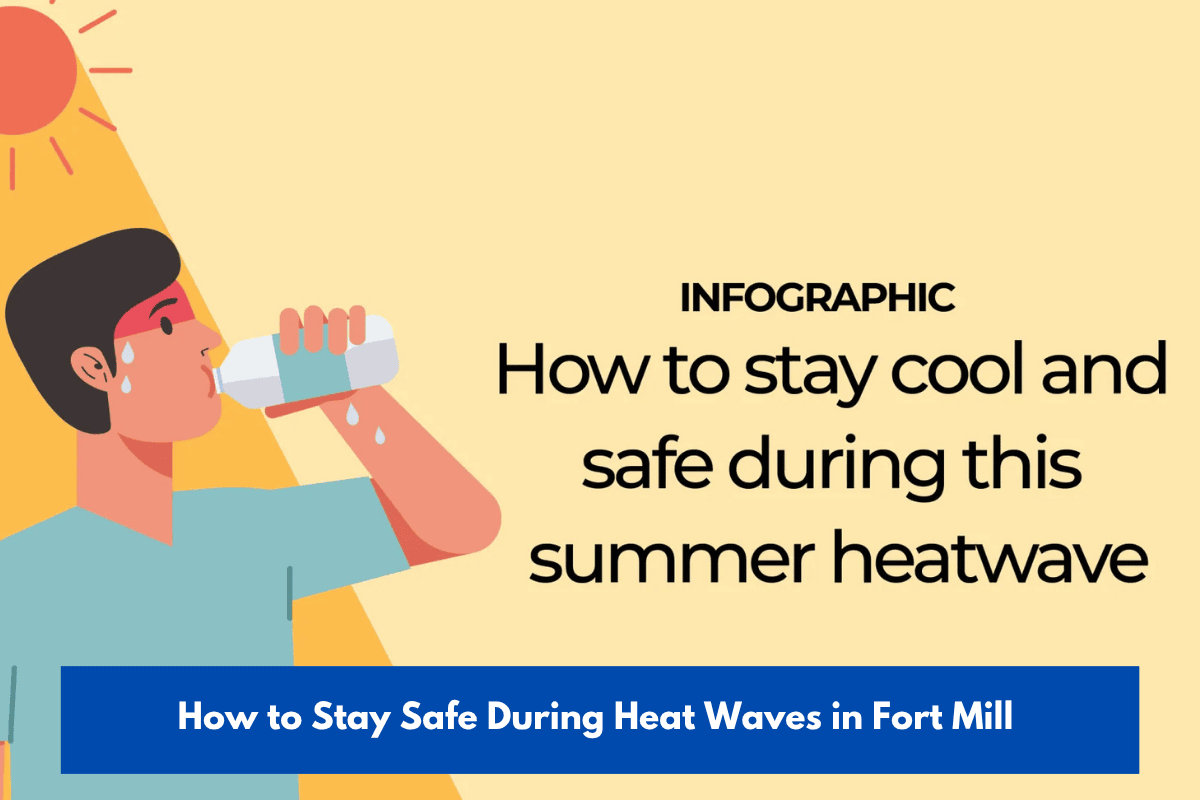Staying safe during heat waves in Fort Mill requires mindful measures to prevent heat-related illnesses and protect vulnerable populations. In 2025, local and state health officials advise residents to take proactive steps as temperatures can reach dangerous levels, often around 100 degrees Fahrenheit or higher.
Key Safety Tips for Fort Mill
Stay Hydrated: Drink plenty of water throughout the day, avoiding caffeine and alcohol that can cause dehydration. Sports drinks with electrolytes can help replenish salts lost in sweat.
Limit Outdoor Activity: Avoid strenuous activities between 10 a.m. and 4 p.m., the hottest part of the day. If outdoor work is unavoidable, take frequent breaks in shaded or air-conditioned areas, wear light, loose-fitting clothing, and use sunscreen to protect from UV rays.
Seek Cool Environments: Stay in air-conditioned spaces whenever possible. For those without AC at home, visit public cooling centers, libraries, or community centers that provide refuge from the heat.
Never Leave Children or Pets in Cars: Even with windows cracked, cars heat up rapidly, risking heatstroke. Always check for children and pets before exiting a vehicle, and keep vehicles locked to prevent unauthorized entry.
Check on Vulnerable People: Regularly check on elderly neighbors, individuals with medical conditions, and others at higher risk for heat-related illness to ensure they are safe and hydrated.
Recognize Heat Illness Symptoms: Know the signs of heat cramps, heat exhaustion, and heatstroke, such as muscle spasms, weakness, dizziness, nausea, confusion, or loss of consciousness, and seek medical help immediately if they occur.
Additional Preparedness
Fort Mill and South Carolina authorities also encourage residents to follow heat advisories, stay updated through National Weather Service forecasts, and prepare emergency supplies such as water, hats, and cooling towels.
By following these practical precautions, residents can reduce the risk of heat-related illness and stay safe during increasingly frequent and intense heat waves.
SOURCES
[1](https://www.chooseenergy.com/energy-resources/save-energy-during-a-heat-wave/)
[2](https://www.instagram.com/p/C9Nl8x7O06I/)
[3](https://dph.sc.gov/news/south-carolina-gears-heat-safety-week-temperatures-rise)
[4](https://www.gavi.org/vaccineswork/how-stay-safe-during-heat-waves-and-heat-stroke-warning-signs-watch)
[5](https://www.redcross.org/get-help/how-to-prepare-for-emergencies/types-of-emergencies/extreme-heat-safety.html)














